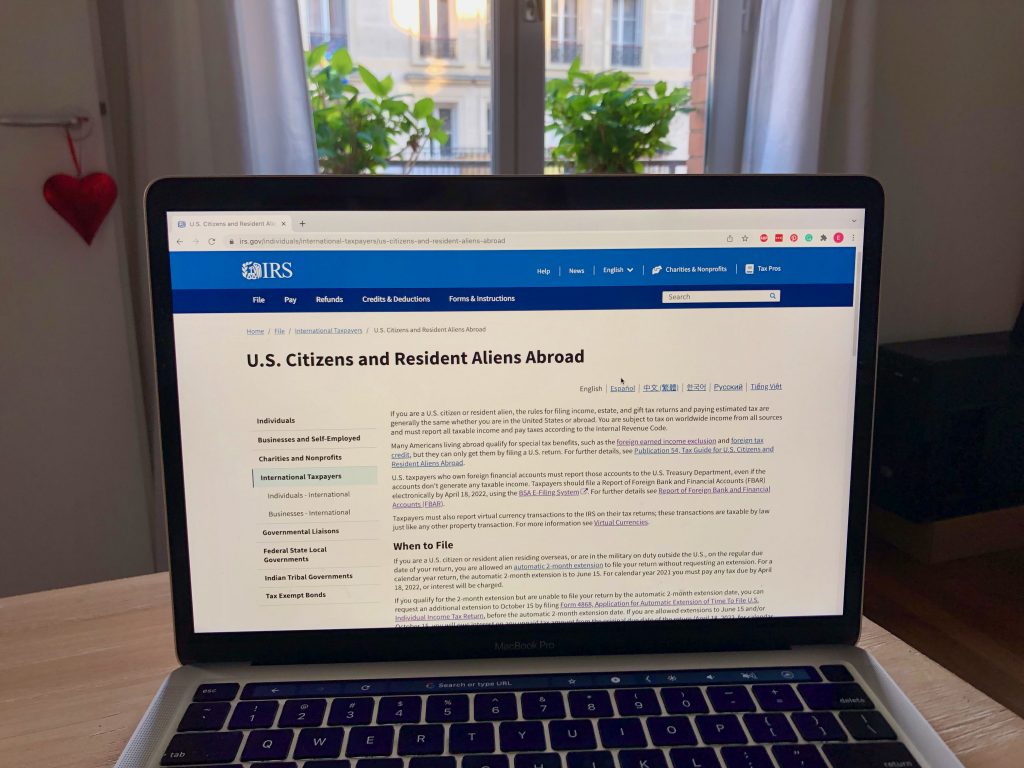If you’re an American dreaming of moving to France, you’re not alone. The allure of picturesque landscapes, rich culture, and vibrant cities like Paris makes France a top destination for many. However, the process of moving from the US to France can be complex, and it’s important to plan carefully. This comprehensive guide will walk you through the steps, costs, and considerations for making your move to France as smooth as possible.
Table of Contents
Moving To France From The USA
Moving to France from the USA is a big decision that requires time, effort, and careful planning. The country offers a rich cultural heritage, delicious cuisine, an excellent healthcare system, and many other benefits that make it a popular destination for expatriates.
In particular, Paris is one of the world’s most iconic cities and attracts people from all corners of the globe. But what is it really like living in Paris as an American?
In this blog post, we’ll explore the ins and outs of moving to France from the USA and what it’s like to settle down in the City of Light. If you’re considering making the move yourself, read on for tips and insights about life as an American expat in Paris.

Moving to France from the US
Ready to embrace the French culture? Immigrating to France from the United States can be a fulfilling experience. This guide will walk you through the immigration process step-by-step.
How Much Does It Cost to Move to France?
Before packing your bags, it’s essential to understand the costs associated with moving to France from the US. The overall cost can vary significantly based on factors such as the city you choose to live in, your lifestyle, and how you plan to move your belongings.
- Shipping Costs: If you’re moving your household items, expect to pay between $2,000 to $10,000 depending on the volume of goods and the distance. Companies like Allied and International Van Lines offer shipping services, and it’s wise to compare quotes.
- Housing: Rent prices vary greatly depending on the location. In Paris, for example, a one-bedroom apartment in the city center can cost between €1,200 to €2,500 per month. Outside of Paris, rents are generally lower, ranging from €500 to €1,200 for a similar apartment.
- Visa and Legal Fees: If you’re wondering how to immigrate to France from the US, you’ll need to consider visa application fees. A long-stay visa typically costs around €99. Additional legal fees may apply if you require assistance with the paperwork.
- Travel Expenses: Flights from the US to France vary based on the time of year and departure city. On average, a one-way ticket can range from $400 to $1,200.
- Living Expenses: Your cost of living will depend on your lifestyle. Groceries, transportation, and entertainment in Paris might set you back around €1,000 to €2,500 per month. Smaller cities and rural areas will have lower costs.
How to Move to Paris from the US
Moving to Paris, the City of Light, is a dream for many. If you’re considering how to move to Paris from the US, here’s a step-by-step guide to help you through the process.
- Visa Requirements: As an American, you’ll need a long-stay visa if you plan to stay in France for more than 90 days. The most common visa types for moving to Paris include work visas, student visas, and family visas. The process involves submitting an application to the French consulate, along with required documents such as your passport, proof of income, and health insurance.
- Housing Search: Start searching for apartments well in advance. Websites like SeLoger and PAP offer listings in Paris. Consider hiring a real estate agent if you’re unfamiliar with the city. It’s important to understand that securing housing in Paris can be competitive, so be prepared to act quickly.
- Moving Your Belongings: Decide whether you want to ship your belongings or purchase new items in Paris. Companies like UPakWeShip offer international shipping services that can handle the logistics for you.
- Health Insurance: France has a robust healthcare system, but you’ll need to ensure you’re covered. Americans moving to Paris can initially use travel insurance, but once you’ve established residency, you should register with the French social security system (Sécurité Sociale) to receive healthcare benefits.
- Getting Settled: Upon arrival, you’ll need to register with the local prefecture and obtain a residence permit (titre de séjour). You’ll also need to open a bank account and possibly get a French phone number.
How to Get a Job in France as an American
One of the biggest challenges for Americans moving to France is securing employment. Here’s how to get a job in France as an American.
- Work Visa: To work in France, you’ll need a work visa. Your prospective employer must sponsor your visa application. Popular work visa categories include the “Passeport Talent” for highly skilled workers and the standard employment visa. The application process involves your employer submitting documents on your behalf, so make sure your job offer is secure before starting this process.
- Job Search Tips: Websites like LinkedIn, Indeed, and Glassdoor are great for finding job opportunities in France. Networking is also crucial, so consider joining expat groups and attending industry events.
- Language Skills: While some multinational companies operate in English, fluency in French will significantly improve your job prospects. Consider taking French language courses before your move.
- Recognition of Qualifications: If your profession requires specific qualifications (e.g., healthcare or education), ensure your American qualifications are recognized in France. This may involve additional certification or training.
- Freelancing and Entrepreneurship: If you’re unable to secure a traditional job, consider freelancing or starting your own business in France. The French government offers various visas for entrepreneurs and self-employed individuals.
How Can an American Move to France?
If you’re wondering, “How can an American move to France?” there are several pathways depending on your situation.
- Family Reunification: If you have a spouse or close family member who is a French citizen or resident, you may be eligible for a family reunification visa. This process involves proving your relationship and financial stability.
- Student Visa: If you’re planning to study in France, you can apply for a student visa. This visa allows you to live in France for the duration of your studies, and you may be eligible to work part-time during your stay.
- Work Visa: As mentioned earlier, securing a job in France is one of the most common ways to move. Your employer must sponsor your visa, and you’ll need to demonstrate that the job cannot be easily filled by a local candidate.
- Retirement Visa: France is a popular destination for retirees. To retire in France, you’ll need to prove sufficient income and health insurance coverage. The visa process for retirees is similar to other long-stay visas, requiring documentation such as bank statements and proof of accommodation.
- Self-Employment Visa: If you plan to work as a freelancer or start your own business, you can apply for a self-employment visa. This visa requires a detailed business plan and proof of financial stability.
How to Move from the US to France: Practical Steps
Moving from the US to France requires careful planning and preparation. Here are the practical steps to ensure a smooth transition.
- Research and Planning: Start by researching the region where you want to live. France has a diverse range of cities and towns, each with its own unique character. Whether you prefer the bustling life of Paris or the tranquil countryside, it’s important to choose a location that fits your lifestyle.
- Visa Application: Apply for the appropriate visa based on your reason for moving. The application process can take several months, so it’s essential to start early. Make sure all your documents are in order, and consult with the French consulate if you have any questions.
- Financial Planning: Moving to France can be expensive, so budget carefully. Consider the costs of housing, shipping, travel, and living expenses. It’s also a good idea to set aside some savings for emergencies.
- Healthcare: Ensure you have health insurance coverage before you arrive. Once in France, register with the French healthcare system to access public healthcare services.
- Cultural Preparation: Moving to a new country can be a cultural shock. Familiarize yourself with French customs, language, and etiquette to make the transition smoother. Consider taking French language courses if you’re not already fluent.
How to Move to France from the United States: Key Considerations
If you’re exploring how to move to France from the United States, there are several key considerations to keep in mind.
- Legal Requirements: Ensure you meet all the legal requirements for moving to France, including obtaining the necessary visas and permits. It’s important to follow French immigration laws to avoid complications.
- Tax Implications: Moving to France as a US citizen has tax implications. The US requires its citizens to file taxes regardless of where they live, so it’s essential to understand your tax obligations in both countries. Consider consulting with a tax professional who specializes in international tax law.
- Banking: You’ll need to open a French bank account to manage your finances in France. Most banks require proof of residence and a valid ID to open an account.
- Housing: Finding a place to live in France can be challenging, especially in popular cities like Paris. Start your search early and be prepared to provide proof of income and references. Rental prices in France vary widely, so it’s important to find a location that fits your budget.
- Language: While English is widely spoken in major cities, knowing French is crucial for day-to-day interactions and improving your job prospects. Investing time in learning French before your move will greatly enhance your experience.
How to Emigrate to France from the US
Emigrating to France from the US is a significant decision that requires careful planning. Here’s how to emigrate to France from the US successfully.
- Choose the Right Visa: Depending on your situation, you may be eligible for different types of visas, such as work, student, family reunification, or retirement visas. Each visa type has its own requirements, so it’s important to choose the one that best fits your circumstances.
- Prepare for the Move: Start by organizing your move, including shipping your belongings, finding a place to live, and arranging travel. Consider hiring a relocation service to assist with the logistics.
- Understand the Legal Process: After arriving in France, you’ll need to complete several legal steps, such as registering with the local prefecture, obtaining a residence permit, and enrolling in the French healthcare system. These steps are crucial for legally residing in France.
- Adapt to French Culture: Emigrating to a new country involves adapting to a new culture. Embrace the French way of life by learning the language, exploring local customs, and participating in community activities.
- Stay Informed: Immigration laws can change, so it’s important to stay informed about any updates that may affect your status in France. Regularly check the French consulate’s website for the latest information.
How to Move to France from the USA: A Detailed Comparison
If you’re debating how to move to France from the USA, it’s important to compare your options and choose the best path for your situation. Below is a detailed comparison of the most common ways Americans move to France.
-
Work Visa vs. Student Visa:
- A work visa requires a job offer from a French employer and allows you to work full-time in France. The application process can be lengthy, and your employer must prove that the job cannot be filled by a local candidate.
- A student visa is ideal for those planning to study in France. It allows you to work part-time while studying, and you may be eligible to apply for a work visa after completing your studies.
-
Retirement Visa vs. Self-Employment Visa:
- A retirement visa is suitable for those who have sufficient income to support themselves without working. This visa requires proof of financial stability and health insurance.
- A self-employment visa is designed for entrepreneurs and freelancers. It requires a detailed business plan and proof of financial stability.
-
Family Reunification vs. Tourist Visa:
- Family reunification is an option if you have close family members in France. This visa allows you to join your family and live in France permanently.
- A tourist visa is for short-term visits and cannot be used for permanent relocation. However, it can be a good option if you want to explore France before making a decision to move.
How to Move to France as an American: Common Challenges
Moving to France as an American comes with its own set of challenges. Here’s how to move to France as an American while navigating these common hurdles.
- Language Barrier: While many people in France speak English, especially in tourist areas, you’ll need to learn French for daily life and work. Consider enrolling in language courses before and after your move.
- Cultural Differences: French culture is different from American culture in many ways, from social customs to business etiquette. Take time to learn and respect these differences to make your transition smoother.
- Housing Market: The housing market in cities like Paris is competitive, and it can be challenging to find affordable accommodation. Start your search early and be prepared to provide documentation such as proof of income and references.
- Legal Processes: Navigating French bureaucracy can be daunting, especially if you’re unfamiliar with the language. Consider hiring a legal advisor or relocation expert to assist with the paperwork.
- Healthcare: France has a high-quality healthcare system, but as an American, you’ll need to navigate the process of registering and receiving coverage. Make sure you have adequate health insurance before your move.
How to Move to France from the USA: A Step-by-Step Checklist
If you’re ready to make the move, here’s a step-by-step checklist on how to move to France from the USA.
- Research Your Destination: Choose the city or region in France where you want to live. Consider factors such as cost of living, job opportunities, and lifestyle.
- Apply for a Visa: Choose the appropriate visa based on your reason for moving. Gather all necessary documents and submit your application to the French consulate.
- Find Housing: Start searching for housing as early as possible. Use websites like SeLoger and LeBonCoin to find rental properties.
- Plan Your Finances: Budget for moving expenses, including shipping, travel, and living costs. Set up a French bank account if possible.
- Organize Healthcare: Ensure you have health insurance coverage for your move. Register with the French healthcare system upon arrival.
- Prepare for Cultural Differences: Learn about French customs and etiquette to help you adjust to your new life.
- Plan Your Move: Arrange for the shipping of your belongings, book your flight, and prepare for your arrival in France.
- Arrive in France: Complete any remaining legal processes, such as registering with the local prefecture and obtaining a residence permit.
- Settle In: Explore your new city, meet locals, and immerse yourself in French culture.
- Stay Connected: Keep in touch with fellow expats and join local communities to build a support network.
Conclusion
Moving to France from the US is a life-changing decision that requires careful planning and preparation. Whether you’re moving for work, study, retirement, or simply a change of scenery, understanding the costs, legal requirements, and cultural differences is key to a successful transition. By following the steps outlined in this guide, you can navigate the complexities of moving to France and start your new life in one of the most beautiful countries in the world.
For more information on moving to France, including detailed guides, cost breakdowns, and tips for living abroad, visit our blog at seafranceholidays.com. Explore our articles on moving to and visiting France and other countries around the world.
If you still have a couple of minutes in your precious time, feel free to explore more detailed and in-depth recommendations on How Amercinas Can Move From The USA To France And Obtain A Job….
1. Visa Requirements for Moving to France from the USA
When planning to move from the USA to France, expats need to obtain a visa to enter and reside legally in the country. Different visa options are available, depending on the purpose of stay and duration. For stays up to 90 days, a Schengen visa is required, which allows travel within the Schengen area. However, those who plan to stay longer must apply for a long-stay visa or a residence permit.
To apply for a long-stay visa for France, expats need to provide a range of documents, including a valid passport, proof of financial resources, and a travel medical insurance policy covering the entire period of stay. It is advisable to apply for the visa several months before the intended arrival date, as the processing time can take up to two months.
For those who plan to work in France, obtaining a work visa is necessary. This requires a job offer from a French employer, proof of qualifications and experience, and compliance with the country’s immigration rules. A work permit may also be necessary depending on the industry and occupation.
It is important to note that visa requirements may change, and it is always best to consult the French embassy or consulate in the USA for the latest information. Expats must also make sure to comply with all visa and immigration regulations to avoid any legal issues that may arise. By following the proper procedures, expats can transition to living in France with ease and enjoy all that the country has to offer.

2. Residency Renewal Process for Expats in France
Once you’ve secured residency in France, it’s important to know the renewal process. Expats with long-stay visas should renew their residence permits at least two months before expiration. The French authorities have transitioned to an internet-based appointment system, but this has led to long virtual queues. It is recommended that expats book their appointment in advance to ensure timely renewal.
If you have lived in France with valid residency rights for at least five years, you can apply for a carte, which provides permanent residency. However, this process is not automatic, and it’s recommended to seek legal counsel to help with the application process. It’s important to check if any documents or requirements have changed since the last renewal, as requirements can change frequently. Failure to renew your residency permit can result in fines or even deportation.

3. Moving to France as a Canadian
Moving to France as a Canadian requires some preparation, but the process is relatively straightforward. Similar to US citizens, Canadians must obtain a long-stay visa to live in France for more than 90 days. The visa application process can be completed online via the Études en France (EEF) platform while residing abroad. Canada is part of the Visa Waiver program with France, making the process easier for Canadians compared to many other non-EU countries.
When moving to France as a Canadian, it’s important to note that while French is the official language, English is widely spoken, especially in cities like Paris. To integrate fully into the community and navigate daily life, it’s helpful to learn French. Canadian expats also need to be mindful of their tax obligations between the two countries and ensure proper reporting to avoid any legal issues.
When it comes to finding housing, Canadians have access to the same resources as other non-French residents. Renting or buying a property may require some language assistance, but dedicated English-speaking agents and real estate agencies are available to help.
Overall, moving to France as a Canadian is a relatively straightforward process, as long as proper documentation and planning are in place. With the right resources and attitude, Canadians can enjoy a fulfilling life in France.

Tax Considerations
Tax considerations are an important aspect for US expats moving to France. Both residents and non-residents are subject to different income tax rates, with residents being taxed on their worldwide income while non-residents are taxed at a minimum rate of 20%, with no exclusions.
For Americans living in France, it is important to file taxes with both the French government and the US government. Americans may be required to file a tax return on worldwide income, even if living abroad. As per French inheritance and gift tax rates, Americans are subject to the same rates as other French citizens.
If you are a self-employed expat, you could pay about 15.3% of your net profit in Self-Employment taxes, which could be high. However, expats can use France’s totalization agreement with the US to their advantage. If you are a resident in France, you are likely required to complete a French tax return to pay tax on your income. Tax rates are progressive and capped at 41%.
Non-residents of France cannot claim exclusions and their income will be subject to progressive withholding taxes. To ensure a smooth tax process, it is recommended to seek professional assistance with both French and US tax filing requirements.
In summary, US expats moving to France must be cognizant of the different tax considerations based on residency status. Filing taxes with both the French and US government is crucial. Seeking professional tax assistance can make the process less daunting.

4. American Expats in France
Moving to France as an American expat may seem daunting, but there are many resources available to help make the transition smoother. It’s important to note that while France may seem similar to America in some ways, there are cultural and bureaucratic differences that must be taken into consideration.
One of the first steps for American expats in France is to obtain a long-term visa. This can be done by applying for a visa de long séjour, which allows you to stay in the country for more than 90 days. Once this is secured, you’ll need to apply for a residency permit to stay longer.
When it comes to finding work, it may be more challenging for American expats due to visa requirements. It’s important to research job opportunities and requirements beforehand. Additionally, understanding the French language is a must for both work and daily life.
In terms of housing, renting or buying property in France can also come with its own set of difficulties, including navigating the housing market and understanding rental laws. It’s important to do research and possibly seek the help of a real estate agent.
Lastly, American expats should be aware of tax considerations and differences between France and the US. There are tax treaties in place to help minimize the impact of double taxation, but it’s important to be knowledgeable about the process.
In summary, moving to France as an American expat requires careful planning and research. Obtaining a long-term visa, understanding the job market, navigating housing, and being aware of tax considerations are all important factors to consider. With the right resources and knowledge, living in France can be a rewarding adventure.

Numbers and Communities
Numbers and Communities are important factors to consider when moving to France from the USA. It is essential to understand the community and cultural differences in the area where expats plan to reside. Paris is a cosmopolitan city with a diverse population, and as an American, one may find comfort in the expat community. It is essential to connect and network with other expats for a smoother transition.
To find the right community, expats can do their research by joining online groups and forums. Social media platforms such as Facebook and Meetup can also be useful in finding the right community. Expats can also look for cultural events or workshops to get a better understanding of the French lifestyle and mingle with locals.
Another important factor to consider is the numbers. It is best to have an estimate of the cost of living, the availability of housing, and job opportunities. This information can be obtained from various websites or expat groups. Understanding the numbers will help in planning the budget and making informed decisions regarding career choices and housing options.
In conclusion, understanding the communities and numbers is crucial when moving to France from the USA, especially when moving to Paris as an American. By connecting with the right community and understanding the cost of living, expats can have a smoother transition to their new home in France.

5. Long-Term Visa Process for Moving to France
To move to France from the USA for a period exceeding 90 days, a long-stay visa is required. The visa application process will need to be initiated well in advance of travel dates to ensure that deadlines are met. The necessary documents for a long-term visa application include a valid passport, proof of medical insurance, and proof of accommodation in France upon arrival.
The long-term visa process for moving to France can be lengthy and complicated, but it is a necessary step for legally residing in the country. One important aspect to consider when applying for a long-term visa is the intended length of stay. If the intention is to stay in France for more than one year, it is recommended to apply for a long-stay visa with a residency permit (VLS-TS). This type of visa allows for multiple entries into the country and can be renewed annually.
To apply for a long-term visa, applicants will need to visit their local French consulate or embassy. It is important to note that the visa application process may vary depending on the applicant’s country of origin, so it is recommended to research specific requirements for the United States.
The long-term visa process is an essential step for those moving to France from the USA for long periods. It is crucial to have all necessary documents and information ready to ensure a smooth and successful application process.
6. Work Visa Requirements for Non-French Residents
To work in France, non-French residents need a short-stay work visa for stays of fewer than 90 days or a long-stay visa as a residence permit with the statement “entrepreneur/profession libérale.” It is up to the employer to obtain the necessary work visas.
To apply for a work visa in France, applicants need to submit their original passport, passport-sized personal photos, and other required documents to the French consulate or embassy. It is essential to note that the visa fee is non-refundable if the visa is refused.
When applying for a long-term visa, students can apply at the French Consulate or via Campus France, which is organized by the French government. The applicants need to submit all the necessary documents and requirements from submitting the visa until receiving it and replying.
In summary, obtaining a work visa for non-French residents requires careful consideration of visa types, employer requirements, and submitting necessary documents. It is important to consult with French embassy officials or legal professionals to ensure successful visa applications.

7. Tips for Renting or Buying Property in France
When it comes to living in France, renting or buying property is a crucial step in ensuring a smooth transition. Thus, it’s essential to know the right tips for renting or buying property in France as an American expat.
Firstly, it’s crucial to research areas that suit your needs and budget. Paris, for example, is a popular destination, but it’s also notorious for being expensive. Therefore, it’s essential to look outside of Paris for more affordable alternatives. Additionally, it’s also essential to check the authenticity of the property and the legitimacy of the seller or landlord.
Next, it’s important to take note of the required documents, particularly for non-French residents. This includes a deposit and a rental contract. It’s also worth noting that proof of income and a bank account in France are usually required for renting a property.
If you’re looking to buy property in France, it’s important to understand the process fully. This includes hiring a notary who will handle the legal aspects of the purchase. It’s also worth knowing that the buying process may take longer in France than in other countries, as it involves obtaining various permits and checks.
Lastly, familiarizing yourself with French property laws can be beneficial. For example, French property law emphasizes tenant rights, which means that tenants have a significant level of protection from eviction. Understanding local property laws can help ensure that you’re on the right side of the law and avoid any legal complications down the line.
Taking these tips into account can make renting or buying property in France an easier process, allowing for a smooth transition into your new life as an American expat in France.

8. Cultural Differences and Adjusting to Life in France
Moving to France from the USA can be a culture shock, but with the right mindset and approach, it can also be an incredibly enriching experience. As an American living in Paris, it is important to acknowledge and be aware of the cultural differences that exist between France and the USA, in order to adjust and integrate smoothly into your new life.
One of the most significant cultural differences to note is the French emphasis on manners and etiquette. Unlike in the USA, where informality is common and direct communication is prized, France places a high value on decorum and politeness. It is important to learn basic French phrases, greeting customs and how to address people (use formal titles, Monsieur or Madame rather than first names) in order to show proper respect.
Another cultural difference to keep in mind is the work/life balance – in France, there is a strong focus on enjoying leisure time, with long lunch breaks and a mandated 35-hour work week. This might take some getting used to for Americans used to a fast-paced work culture. However, the French also place a high emphasis on family and socializing, with plenty of opportunities for communal food and drink, so there are benefits to this lifestyle too.
When adjusting to life in France, it is also worth noting the differences in food culture. The French are known for their delicious cuisine and gourmet delights, so it is important to try local delicacies and appreciate the art of food preparation. Understand that the French meals usually come with structured courses and often last for hours.
Finally, it is crucial to immerse oneself in French language and culture by taking language classes, attending cultural events, or making friends with French people. This is essential to expanding one’s social circle, learning more about French culture, and truly feeling at home in Paris.
Overall, moving to France and adjusting to life as an American in Paris can present some challenges, but with an open-minded and respectful approach, it can also be a rewarding experience full of new opportunities, amazing cuisine, and deep cultural insights.
9. Learning French: Essential for Integration
Moving to France from the USA or any other English-speaking country can be an exciting but daunting experience. To integrate into French society, it is crucial to learn the language. Without understanding French, you will find it difficult to make friends or seek employment opportunities. Speaking the language opens doors to new experiences and strong cultural connections.
To begin learning French, many expats opt for French classes, offered by various schools and institutions, throughout France. These courses range from beginner to advanced levels, and some may focus on French for specific industries or professions.
Besides taking French classes, integrating yourself into French society can be useful in learning the language. Attend local events, festivals, or markets, where you can interact with the locals and practice your French. Watch French television shows and movies, listen to French radio, and read French literature or newspapers. Immerse yourself in the culture to enhance your understanding and practice of the language.
If your work schedule is busy, a language exchange practice with a French-speaking partner is another practical option. Join local associations, clubs, or groups that align with your interests and hobbies, where you can meet natives who share the same passions as you. This will give you an opportunity to practice conversational French while doing something that you love.
Remember, the key to learning French is practice. Make mistakes, learn from them, and don’t be afraid to speak up. French people appreciate the effort that foreigners put into learning their language, and will be happy to assist you in your endeavors.
In conclusion, learning French is essential for integration into French society. Take advantage of the available resources, and immerse yourself in the language to enhance your experience of living in Paris as an American. With persistence, patience, and practice, you will rapidly improve your language skills, making your venture into French culture a success.

10. Shipping and Storage: Don’t Bring Your Furniture.
When moving to France from the USA, it can be tempting to bring all of your furniture and household goods with you. However, this may not be the best option in terms of cost and practicality. Shipping large items such as furniture can be expensive, and there is no guarantee that they will fit into your new French home.
Instead of bringing your furniture, it is recommended that you sell or donate it before moving. This will not only save you money on shipping costs but also allow you to start fresh in your new home. There are plenty of furniture stores and markets in France where you can find unique and stylish pieces to decorate your home.
If you do decide to bring some larger items, it is important to consider the shipping options carefully. While air freight may be quicker, it can also be much more expensive. Shipping by sea is a more cost-effective option, but it can take several weeks for your items to arrive.
It is also important to note that French homes and apartments may be smaller than their American counterparts, so bringing large furniture may not be practical. It is best to focus on bringing smaller, more essential items such as clothing, electronics, and personal documents.
By leaving your furniture behind and focusing on bringing only the essentials, you can save money and start fresh in your new home in France. Plus, you’ll have the opportunity to explore the unique styles and designs that France has to offer.

Living In Paris As An American
Living in Paris as an American can be an exciting adventure, but it’s important to understand some key aspects to ensure a smooth transition. One of the first things to consider is finding suitable accommodation. This can be a challenge in a city where space is at a premium, so it’s best to familiarize yourself with the different neighborhoods and their characteristics, as well as the rental market. It’s worth noting that the process can be different from what you’re used to in the US, so it may require some patience and flexibility.
Getting used to the Parisian lifestyle can take some time, especially if you’re used to a different pace of life. Paris is known for its vibrant café culture, and there are plenty of great restaurants, bars, and markets to explore. However, it’s also a densely populated city, so it can be helpful to establish a network of expats or other foreigners who have gone through similar experiences. Joining social groups or clubs can be a great way to meet new people and get involved in the community.
Another key consideration is learning the language. While it’s possible to get by in Paris without speaking French, it can be limiting both socially and professionally. Many jobs in France require a good knowledge of the language, so it’s worth investing in lessons or classes to improve your skills. Additionally, learning the language will help you to better integrate into the local culture and make the most of your time in Paris.
Overall, living in Paris as an American can be a rewarding and enriching experience. It’s important to approach the move with an open mind and a willingness to adapt to a new way of life. With some preparation and research, you can maximize your chances of success and enjoy all that this vibrant city has to offer.
